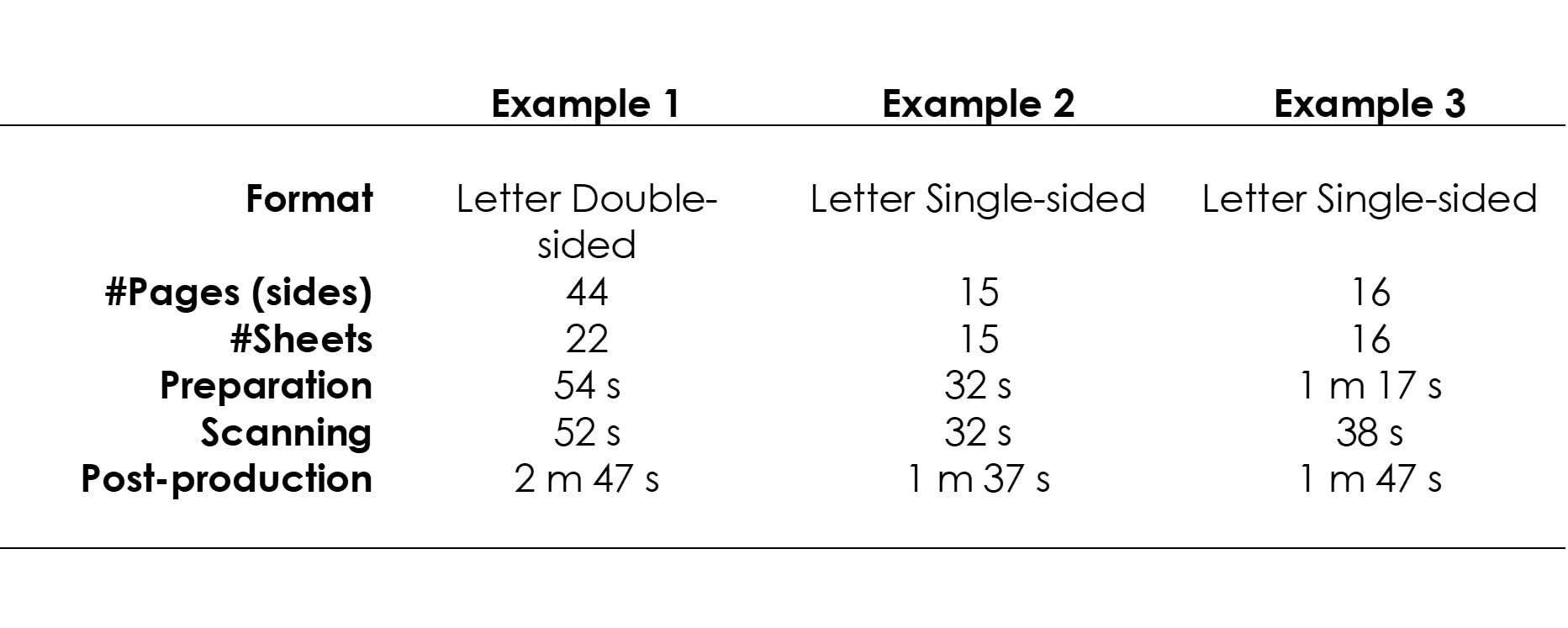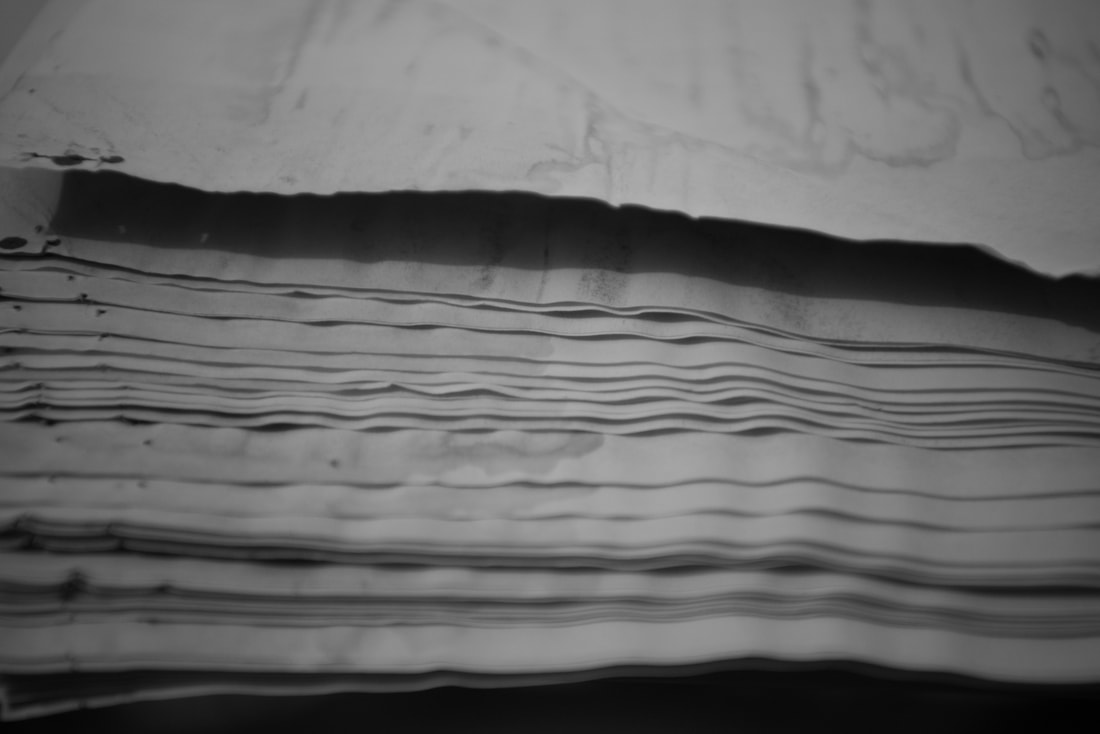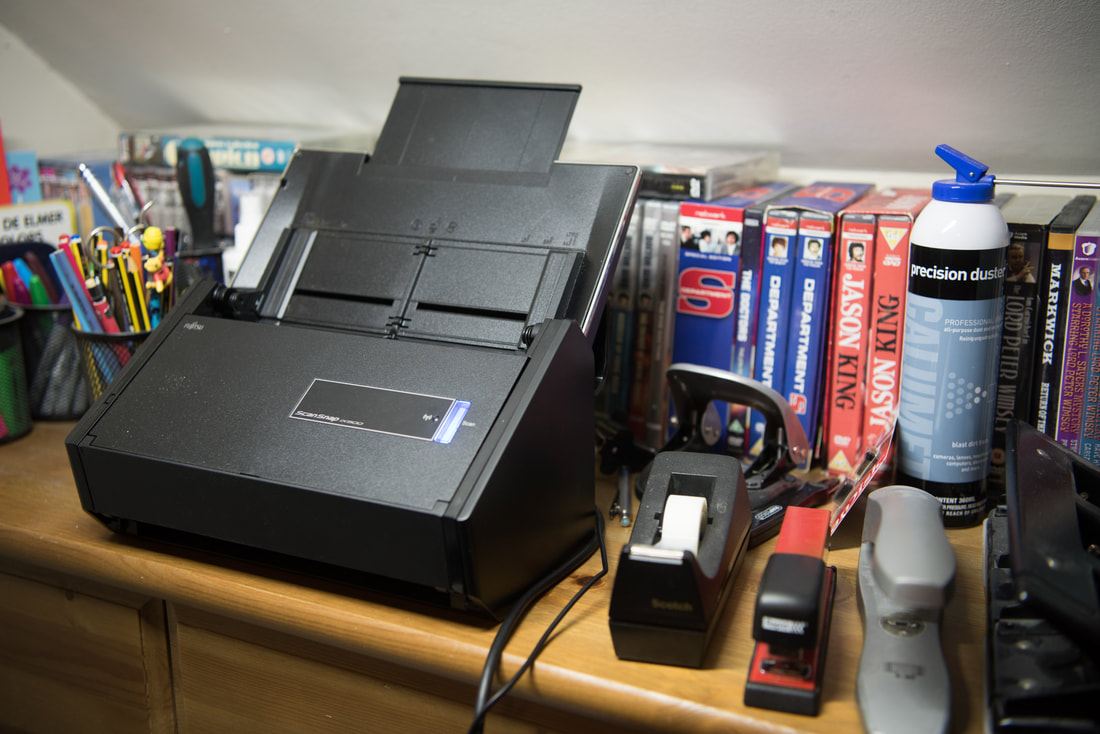Data is only useful when accessible. A guide to scanning with the Fujitsu ix500
Data is only useful when accessible. A guide to scanning with the Fujitsu ix500
Written by: Paul Markwick

During my Ph.D I built up a substantial research library of papers and notes, which have travelled with me for the past 30 years. For much of that time they been ensconced in boxes, which rather limits their use. Knowledge may be power, but only when its accessible.
Over the past decade the internet has become a resource for reviews of just about every product, device and service and I, like many others, have sought these out to help in deciding on what to buy. It is now time to return the favour and add to this online resource as an actual user of a product.
In this case the Fujitsu Scansnap IX500 document scanner.
Ok, so some of you have switched off already. And it must be said that document scanning tends to fall into the same category as project and data management when it comes to entertainment value.
But if you are faced with a mountain of physical documents and the need to make these accessible, you may start to feel a little differently.
The problem I had to solve was this: an extensive and potentially powerful library of 25,000+ physical documents, scientific notebooks and papers, stored in my basement.
During my Ph.D I built up a substantial research library of papers and notes, which have travelled with me for the past 30 years. For much of that time they been ensconced in boxes, which rather limited their use. Knowledge may be power, but only when its accessible.
Each paper and document was housed in a manila card folder, with a label and arranged alphabetically. This followed the data management methods used by in the Paleogeographic Atlas Project at The University of Chicago, where I did my PhD.
After my house was flooded a few years back, much of this library also ended up a little soggy. Sadly, some of my library was beyond saving, except as the stock for making papier mâché volcanoes, but it prompted me to act.
Although having physical copies is still often the best way to work, access is even more important. Today we have the technology to turn all this paper into searchable pdfs, technology we did not have back in the 1980s and 1990s.

The Fujitsu Snapscan iX500 is a dedicated document scanner that is compatible with both Mac and PC. The unit I have is still available (ix500) although it has now been replaced by an updated model, the iX1500
Scan Quality
The Snapscan iX500 can scan documents up to a resolution of 600 dpi (Color, grayscale) and 1200 dpi (B&W). I have mine set at 300 dpi (color, grayscale), 600 dpi (B&W), which is a compromise of the need to have high enough resolution figure scans, but also ensuring that file sizes are manageable.
Speed
With 25,000+ documents to scan, speed is key and the iX500 makes the task tractable. The published numbers of 25ppm for color scanning seem about right in practice. I have included three examples from my scanning workflow in the table below. For each example I used the following settings:
- Image Quality: Best (color/Gray: 300 dpi B&W: 600 dpi)
- Color mode: Auto color detection
- Scanning side: Duplex Scan (example 1), Simplex Scan (examples 2 and 3)
- Image Rotation: Do not rotate
- Blank page removal: yes (on)
- Continue scanning after last page: yes (on)
As an explanation of the workflow stages:
“Preparation” refers to removing document covers and staples and ensuring that all pages are separated, especially where papers are water-damaged.
“Scanning” refers to the actual process of scanning through the scanner.
“Post-production” refers to the process of adding the results to my data management system, and where appropriate linking the file to my bibliography database. This also includes any rotation of individual pages using Adobe Acrobat.

The OCR software bundled with the ix500 is good. On occasions it does fail with an error message on the computer to ask if you want to save the file as images only. From experience if this happens then I recommend rescanning the document to see if it works the second time around. If that fails, turn the document 180 degrees and scan again. I am not sure why this would work, but in most cases, it solves the problem.
Ease of Use
The unit is incredibly easy to use, but here are few things to remember, especially if you ‘forget’ to read the instructions:
- Documents should be placed top down, with the first page facing the back of the scanner
- ‘Jamming’. The scanner is sensitive to changes in paper size or thickness during scanning. This is actually a great feature, because it means that the software will flag you if it senses that multiple pages have accidentally passed through the scanner and it will stop the process. You can then choose to continue if the error is not important (i.e. the thickness change is intentional) or pause the processing if there is a problem. If there is a problem, by having chosen the “Continue scanning after last page” option, you can then open the unit, remove the pages, loosen them, then close the unit and replace the remaining pages. Then push start to continue scanning. If you have a more serious problem, such as pages are wrinkled or have creases (the problem I have had due to water damage), you may have to send each page through separately.
- Reception tray. I tend not to use this and have the unit feed paper out into a tray under my desk. This ensures that there is nothing to inhibit paper passing through the scanner.

Wrinkling of paper sheets due to water damage. If you have a similar problem, make sure that you first separate all the sheets before loading them into the scanner. You may find that you have to load each sheet separately if the wrinkling is particularly bad. Also, be aware that this sort of damage can lead to sheets being fed at an angle through the scanner. Again, this why my setup has the <Continue scanning after last page> switched to “on” because you can then quickly reload the page. The other thing to aware of is that water-damaged paper may have spores and other fungal damage. This may loosen and get into the scanner mechanism. I use an air spray designed for photography to clean any loose material from the scanner.
Size of unit
The iX500 is relatively small and light in weight and sits easily on any desk or table. The quoted dimensions are 292 mm x 159 mm x 168 mm (11.5 in. x 6.2 in. x 6.6 in.). But this is probably easier to visualize in the photo below. The scanner size will not be an issue.

Paper size limits
The scanner can scan up to A4, Letter and Legal sizes. The accompanying user guide states a maximum weight of 209 g/m2 and certainly I would not want to put anything thicker through the unit. For larger documents I use an A3 Brother MFC-J69300W All-in-one printer scanner, which has been great and is highly recommended especially when you can find it on offer.
Price
This is not the cheapest scanner available, but frankly, for the price, it is worth every penny. Expect to pay anything from around $400-500 (c. £400 in the UK).
Other reviews
The ix500 receives great reviews on the internet. Here are a selection of the reviews I have used:

